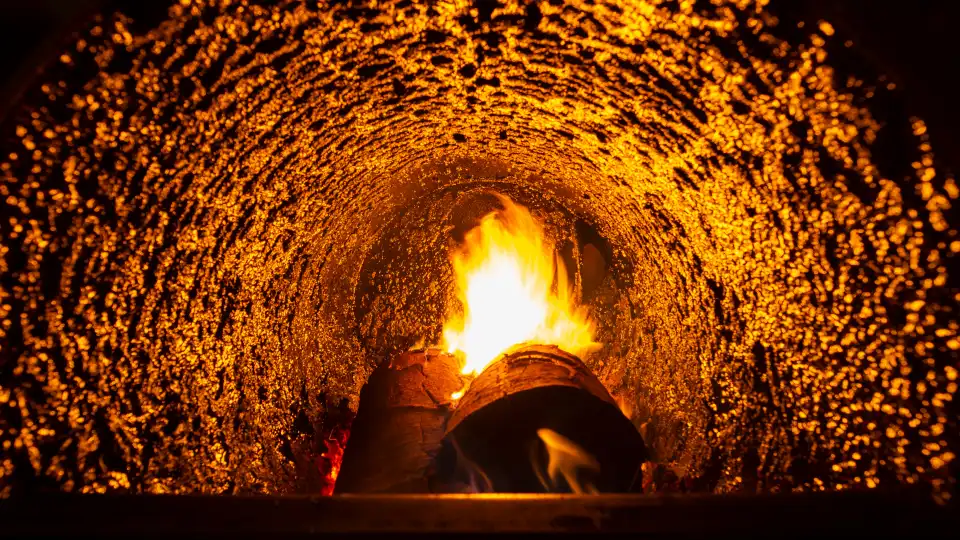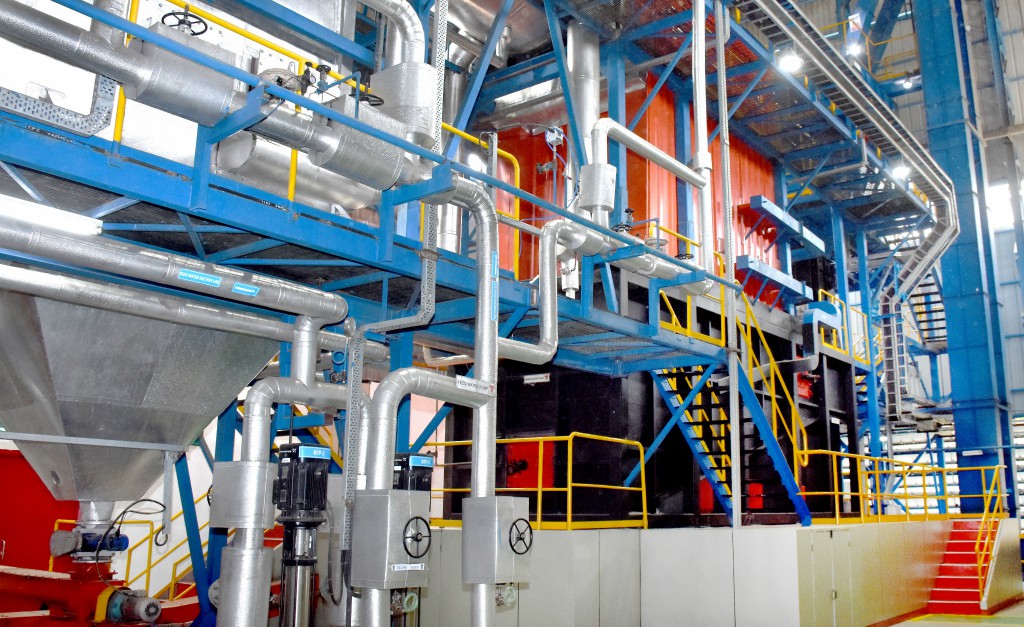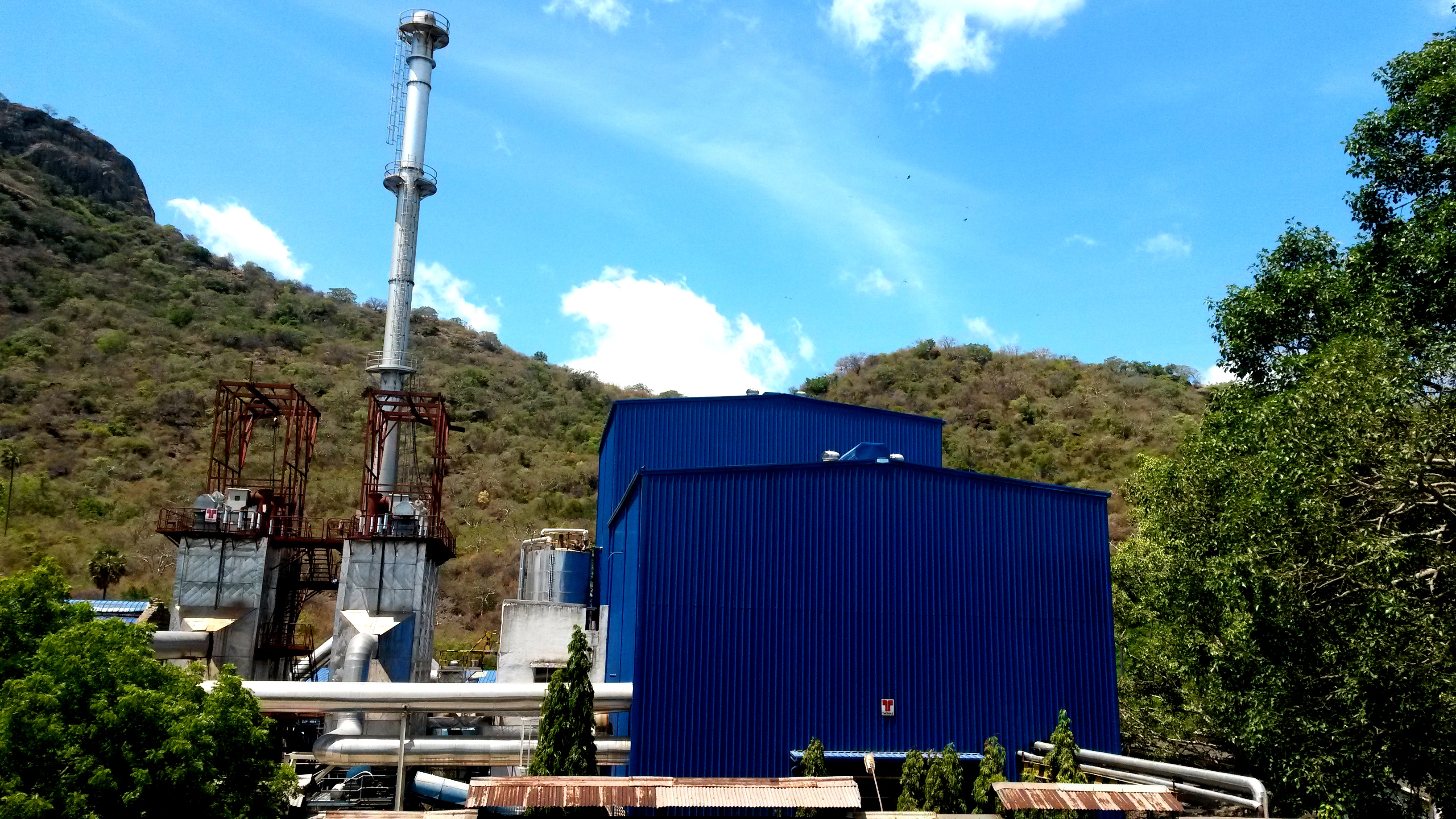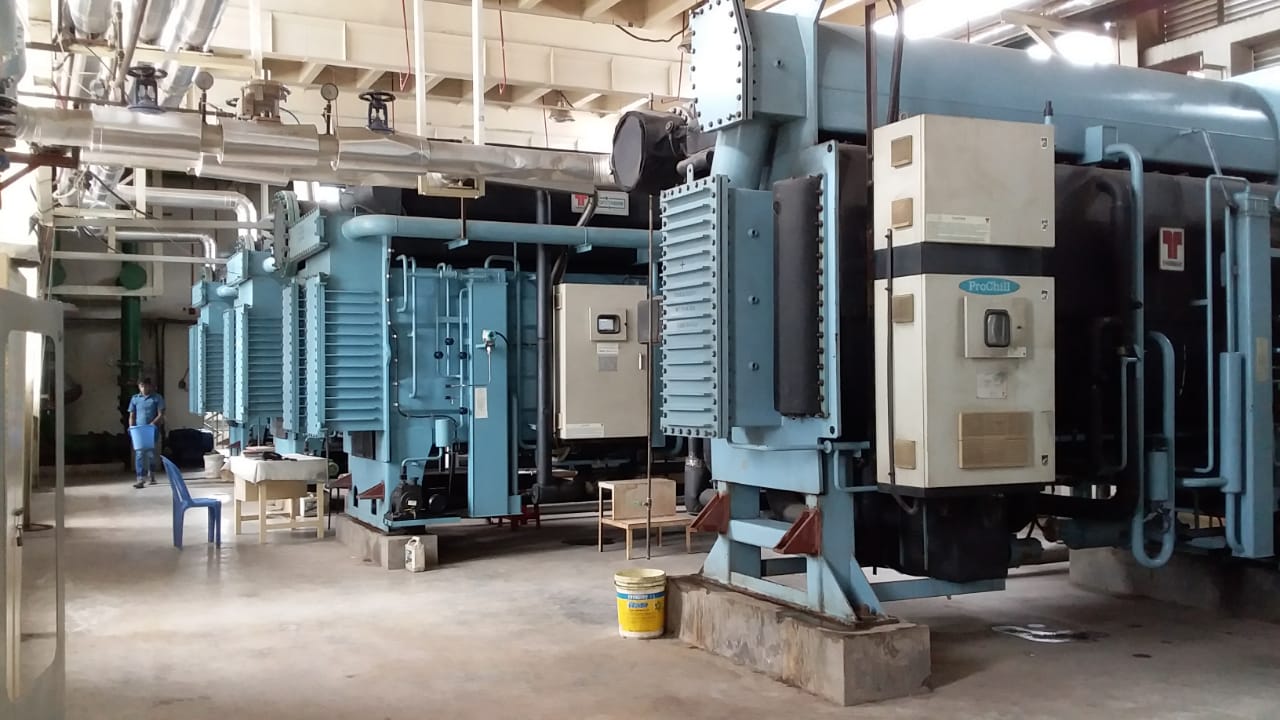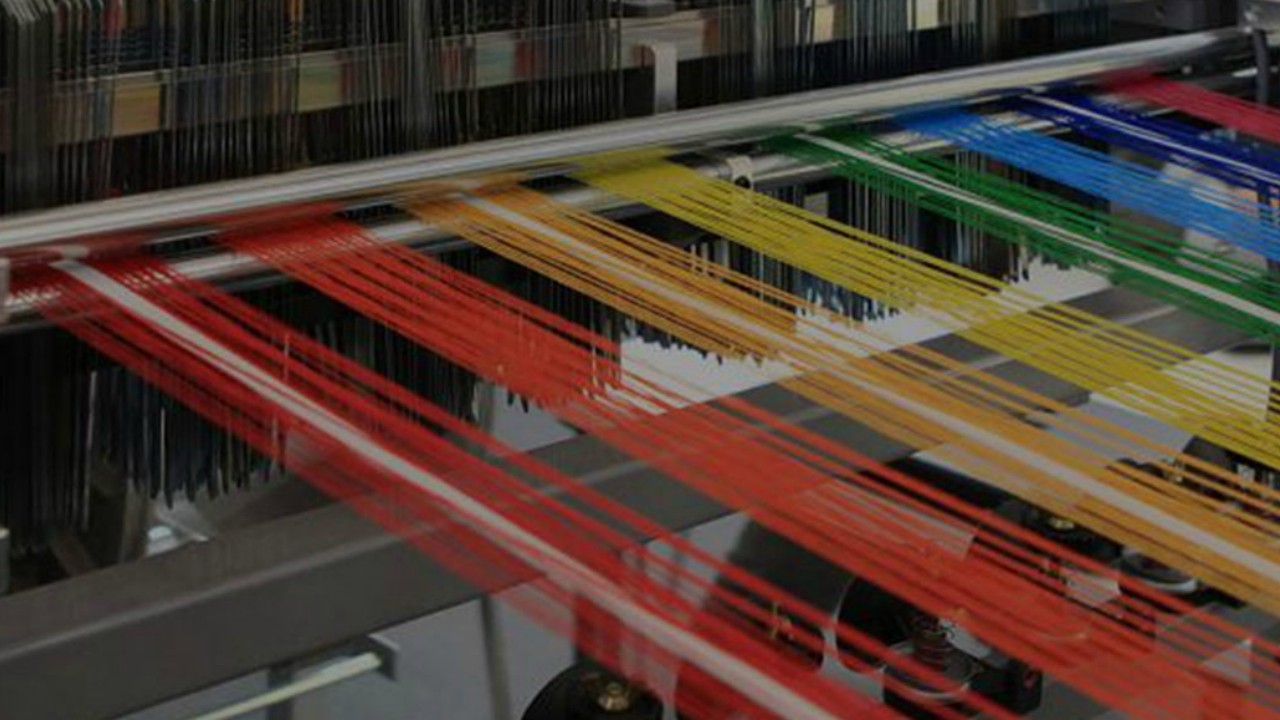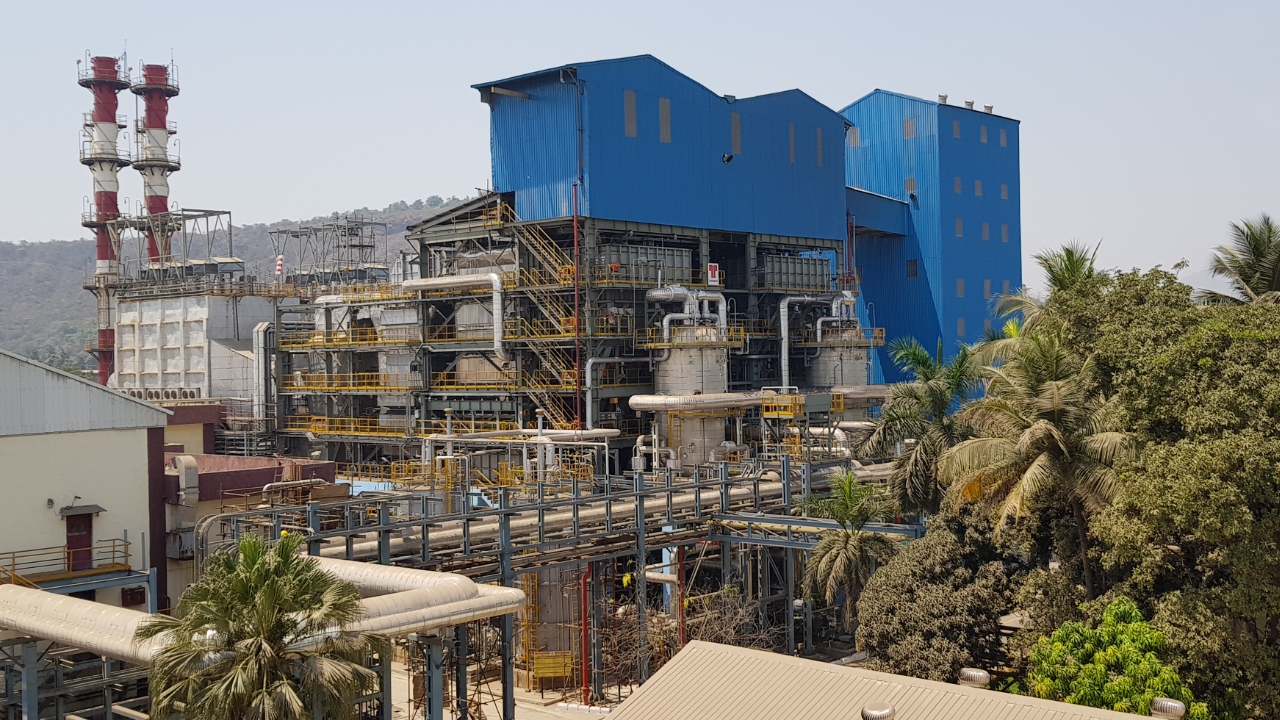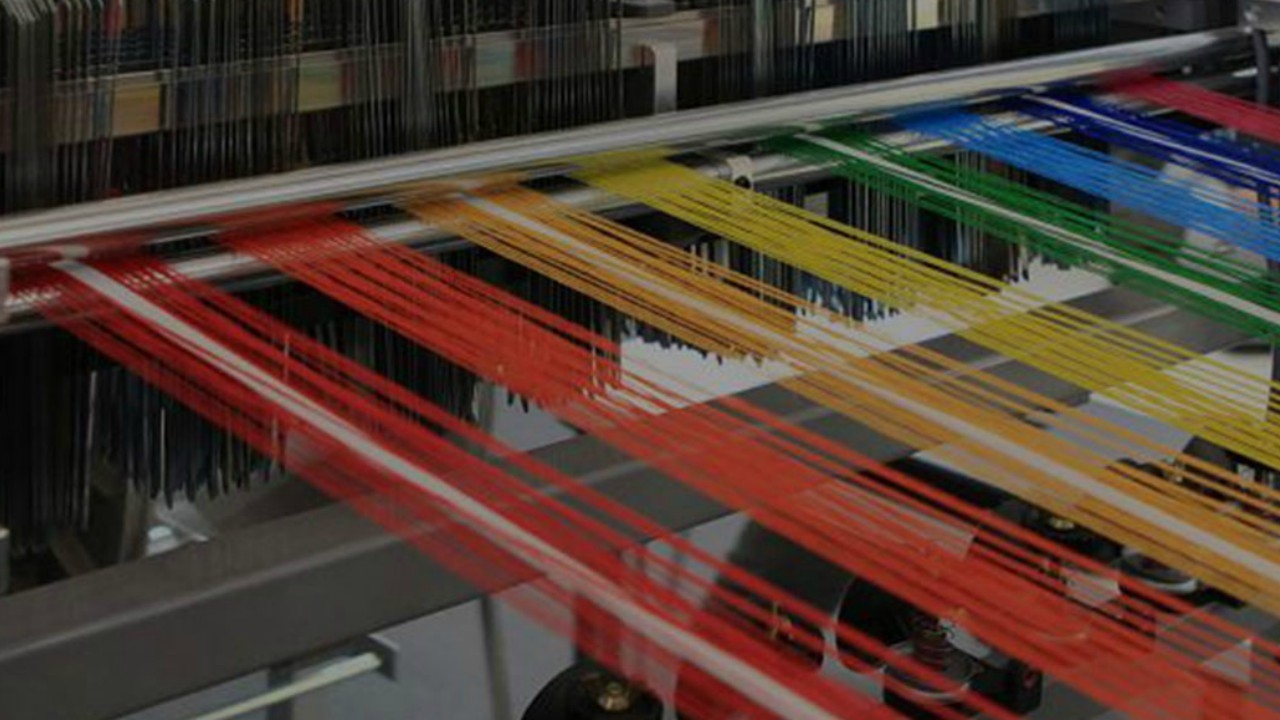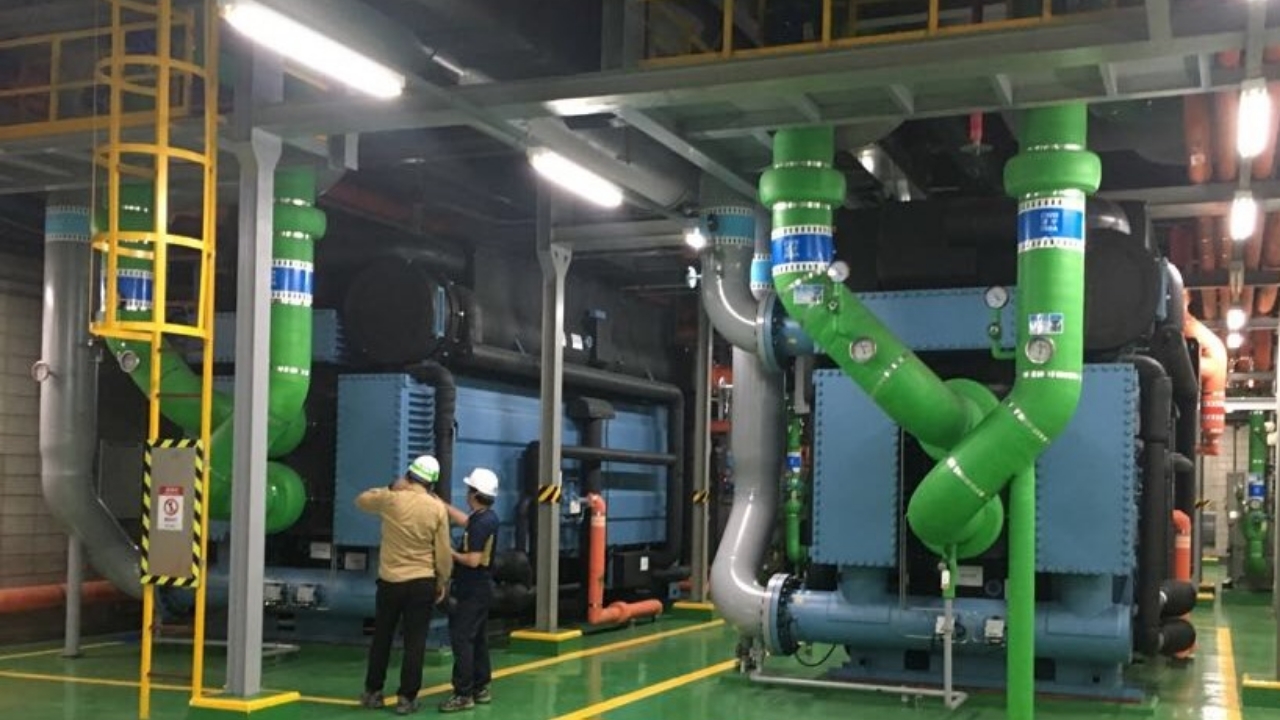A leading global virgin and recycled polyester supplier was experiencing problems with the quality of their boiler water. Their existing chemical supplier was unable to control the water and chemical residuals to the recommended guidelines. As a result, the boiler water would turn red, which is a sign of corrosion and scaling problems.
Thermax’s distributor offered our Boiler Chemical Programme to the customer. Within three days of starting the programme and close monitoring, the boiler water was cleared, indicating that there was no new corrosion and the water quality met the recommended guidelines.
The customer was satisfied with the product performance and service standards of Thermax. As a result, Thermax has now been contracted to provide the customer with cooling water treatment chemicals.
TOESL supplies Steam to a Textile Major (Maharashtra)
Thermax Onsite Energy Solutions Limited (TOESL)
provides outsourced utility delivery services based on the Build- Own-Operate (BOO) business model, enabling customers to optimise costs, reduce CO2 footprint and remain focused on their core business.
The customer is the leading player in the textile industry and one of the marquee customers of TOESL. It uses state-of-the art technology to manufacture wide range of high quality nylon processed yarns.
COMBIPAC Biomass Boiler Model: CPRG160 with Reciprocating Grate using Lambion, GmbH Technology
Boiler Capacity: 16 TPH
Site Location: Pune, Maharashtra
Fuel: Biomass Briquettes
Estimated CO2 Reduction: 15,600 TPA
Project Overview
The customer’s manufacturing unit was operating with 5 boilers for generating process steam, out of which 4 were oil-fired (subsequently two were retrofitted to run on biomass) and 1 was biomass-fired. Due to process expansion and hence an increase in the steam demand, the following was observed:
- Existing retrofitted boilers, being manual fired and inefficient, were unable to deliver economically.
- The retrofitted boilers were unable to consistently meet the environmental standards in spite of Bag Filters being installed.
- The retrofitted boilers had also run their lifetime and were unsafe to operate, thus requiring high maintenance costs.
- More furnace oil was required to meet the enhanced demand which further added to the cost of production.
Boiler at a Glance
| Model | Capacity | Type |
|---|---|---|
| CPRG160/17.5 | 16 TPH (F&A 1000 C)each | Horizontal Multi-tubular Shell Type Smoke Tube with Water Wall Furnace |
| Design Pressure | Operating Pressure | |
| 17.5 kg/cm2 | 15 kg/cm2 |
Thermax Onsite’s Offering
TOESL has installed a biomass briquette-fired boiler of 16 TPH @ 17.5 kg/cm2 (g) to be operated and managed through a long- term comprehensive OPEX contract under Build-Own- Operate (BOO) business model, replacing the previous boilers and ensuring energy (steam) delivered at an optimum price leveraging high-end automated biomass boiler installation. Electrostatic Precipitator was included in the scheme to meet the stringent environmental standards.
Benefits to Client
- Optimum cost-effective steam price
- Guaranteed boiler uptime & efficiency throughout the product lifecycle
- No investment for boiler plant and machinery by customer
- Comprehensive O&M
- Significant decrease in SPM in emissions-upto 50 mg/Nm3
- Dedicated biomass fuel supply chain ensuring consistent quality at right price
- The customer focuses on its core business while TOESL takes charge of steam supply
Green Steam Supply for a Textile Industry
The customer is one of the Indian manufacturing units of a multinational company, which is the world’s leading industrial thread manufacturer. The company is also a major player in America’s textiles crafts market and is headquartered in the UK.
Energy is one of the main cost factors in the textile industry. In an increasingly competitive global environment, industrialists seek to reduce production costs without affecting their production.
Thermax Onsite Energy Solutions Limited (TOESL), a subsidiary of Thermax Limited, provides outsourced utility delivery services based on the Build-Own-Operate (BOO) business model, enabling customers to optimise costs, reduce the CO2 footprint and remain focused on their core business.
In 2012, TOESL approached the client’s management with a steam supply proposition based on biomass as a fuel. On conducting a feasibility study of the plant, the team discovered that annual consumption of furnace oil by the plant was around 24,000 tons, which contributed greatly to the overall energy cost. Skyrocketing fuel prices affected the operating cost, and furnace oil, being a fossil fuel, resulted in high carbon emissions.
In a move to generate cost savings and align itself with its principles of sustainability, safety, performance and technology, the customer chose TOESL offering of a biomass-fired boiler and entered into a long term BOO based steam supply contract.
PROJECT OVERVIEW
The customer uses steam for indirect heating in the processes of dyeing and finishing and also uses it directly in the bleaching process. Previously, the plant was operating four furnace oil fired boilers, having cumulative capacity of 36 tons per hour to supply steam for their processes.
TOESL VALUE PROPOSITION
- BIOMASS FUEL MAPPING
- Fuel survey was undertaken for the particular site location to identify the availability of biomass fuels within a 300 km radius of the site, in the provinces of Tamil Nadu and Kerala.
- Fuels identified: Waste wood chips (primary fuel), paddy husk, cashew nut shells, palm kernel shells
- Vendor development to establish fuel supply chain network from source to site
- Evaluation of biomass price and available quantity over the course of the year
- PROJECT ASSESSMENT AND OUTLINE
- Analysis of load patterns of the process plant
- Analysis of steam consumption by the processes –minimum, average and peak
- Established the minimum steam off-take
- Evaluated space available on-site
- TECHNOLOGY SELECTION AND ENGINEERING
- Leveraged state-of-the-art, multi-fuel technology by Thermax and provided optimised, highly efficient and sustainable offerings to the customer
- Detailed engineering was undertaken to deliver customised high-end solutions
- INSTALLATION AND COMMISSIONING
- Installed and commissioned the biomass-fired boiler along with boiler accessories, fuel and ash handling systems and air pollution control equipment.
- OPERATION AND MAINTENANCE
- Comprehensive O&M along with fuel, ash, chemicals, consumables and spares management provided by TOESL
- Deployed experienced and trained manpower
- Routine regulatory compliance
- Maximise uptime and operating efficiency
- Online and remote performance monitoring
TECHNICAL SPECIFICATIONS
- Biomass fired boiler having reciprocating grate (Lambion, GmbH Technology)
- Boiler type: Horizontal multi-tubular shell type smoke tube with water wall furnace boiler
- Boiler model: CPRG150 (2 numbers)
- Boiler capacity: 15 (x2) TPH
- Boiler design pressure: 14 kg/cm2 (g)
- Boiler Fuel: Waste wood chips
TOESL STEAM SUPPLY AGREEMENT
- Civil foundations and structure for the utility plant provided by customer
- Complete capital expenditure of the equipment undertaken by TOESL
- Agreement period of ten years
- Interest free security deposit paid by customer at the time of signing the agreement, which shall be refunded at the end of the agreement period
- Fuel is charged on a pass-through basis
- Utility is charged as per off take
- Utility costing is done based on minimum off take decided between customer and TOESL
- Reduced utility price on consumption exceeding minimum off take
- Guaranteed delivery of uptime
BENEFITS TO CUSTOMER
- Cost reduction due to effective utility price
- Significant carbon savings
- Guaranteed boiler uptime and efficiency throughout the product lifecycle
- No investment in utility plant and machinery by customer
- Significant reduction in suspended particulate matter in emissions
- Dedicated biomass fuel supply chain ensuring consistent quality at the right price
On account of operating the biomass-fired boilers, the customer has contributed to CO2 reduction of over 21,000 tons annually.
CONTACT
+91-98233-55547 | enquiry@thermaxglobal.com | www.thermaxglobal.com
Absorption chillers at a renowned textiles company
Established in 1984, a textiles manufacturer in Bangladesh has expanded dramatically over the past three decades and built a remarkable distinction as an exporting giant in the market. Thermax has supplied four units of steam fired vapour absorption chillers of 2700 TR, which deliver chilled water to meet the process cooling requirements of the textile plant.
Boiler Application In Jute Industry
THE CUSTOMER PROFILE
Champdany Industries Ltd (formerly Wellington Jute Mills) – a Kolkata based manufacturer and exporter of high quality jute products like yarn/twine, fine hessian cloth, jute bags, decorative jute fabrics and blended fabrics. Their manufacturing unit is at Rishra, about 25 kms from Kolkata. The plant’s steam requirements are met by a Thermax make 5 TPH boiler, fired on coal and jute caddy / briquettes.
THE CHALLENGE
The requirement called for a sustainable solution – taking into account the mix of fuels being burnt – not only on the combustion side but also on the pollution control side. The challenge was to come up with a system that would help the customer slash their energy costs, keeping emissions low at the same time.
Initially Electrostatic Precipitators (ESPs) were not in the reckoning, since they were not considered viable for boilers with capacities less than 10 TPH. But, with options like scrubbers and bag filters being ruled out on fuel mix and other technical grounds, the choice finally narrowed down to the ESP. The challenge was not only to achieve the desired results, but to do so in very limited space – a typical constraint especially in such old units
dating back to pre-independence times.
THE THERMAX -ENVIRO SOLUTION
Thermax came up with a new product to handle emissions from small boiler a ‘baby’ ESP. This uniquely designed ESP, developed in-house at Enviro, blends the best elements drawn from technology absorbed from two earlier collaborators. That Thermax has in fact delivered more than what was committed is visible from achieved 3 emission levels of less than 50 mg/Nm3 against the contractual 100 mg/Nm3.
TYPICAL ‘BABY’ ESP BOILER APPLICATIONS
Can be designed for different combustion systems based on:
- Coal – Indian, Indonesian, Chinese, South African, Australian etc.
- Lignite – Kutch, Neyveli etc
- Agro Waste – Coconut/ Groundnut shells, Coffee waste, Tea leaves, Jute caddy, Chilli powder etc.
- Wood
- Oil
- Multi-fuel
- Waste heat recovery -from Sponge iron kilns, DG sets etc.
PROCESS PARAMETERS
Boiler: 5 TPH, Manual, Coal / Jute Caddy Fired
| Fuel | Coal | Jute Caddy |
|---|---|---|
| Gas Volume (Am3 /hr) | 14,076 | 14,520 |
| Temperature (deg. C) | 180 | 180 |
| Inlet Dust Load (gm/Nm3) | 15 | 20 |
| Guaranteed Emission (mg/Nm3) | 100 | 100 |
| Actual Emission (mg/Nm3) | 50 | 50 |
Handling fuel shift deftly for a polyester major
One of the largest producers of polyester fibres in India has a plant located at Patalganga in the state of Maharashtra. To deal with the rising prices of hydrocarbon fuels, the customer decided to switch to coal for operating its utilities. Catering to this requirement, the Boiler & Heater (B&H) division of Thermax commissioned two units of 15 MMkcal/hr coal-fired Dowtherm vapourisers for the customer.
Dowtherm vapouriser is a preferred technology in manufacturing heat sensitive products such as fibres as it provides a more uniform heat source and precision temperature control. Thermax being pioneers in this application, customised the design for coal-fired vapourisers successfully.
An atmospheric fluidised bed combustor burns Indonesian coal and is connected to a radiant and convective tube bank which generates the Dowtherm vapour. This solution will not only help bring down fuel costs for the customer but also recover their investment within a short time.
ZLD at a textile major
Thermax recently installed a Zero Liquid Discharge (ZLD) plant with a recycling capacity of 3.6 million litres per day (MLD) at a textile major located at Ambasamudram, Tamil Nadu. This system consists of an effluent treatment plant (ETP), recycling plant & multiple effect evaporators (MEE). The wastewater generated from manufacturing activities such as thread dyeing and bleaching are treated in the ETP followed by the recycling plant. The membrane filtration based processes help recover good quality water from this treated wastewater. While the recovered water is used by manufacturing units, the rejected water is sent to the MEE. MEE reduces the volume of the waste to be handled, thereby disposing off the brine generated; leaving zero discharge at the end of the treatment cycle.
Chiller commissioned at a polyester manufacturer in Taiwan
The Cooling business supplied and commissioned a triple effect chiller at Taiwan’s Far Eastern New Century Corporation, one of the world’s top polyester suppliers.
The 800 TR chiller air conditions the office and the shop floor. Additionally, it is used for jacket cooling in the roller machines. With global firms focusing on the twin objectives of using energy efficient products and protecting the environment, Thermax is building business partnership with reputed business houses across the world. It has also commissioned four double effect steam fired chillers of 1250 TR each to air-condition the R&D building of Samsung Electronics, Korea.

